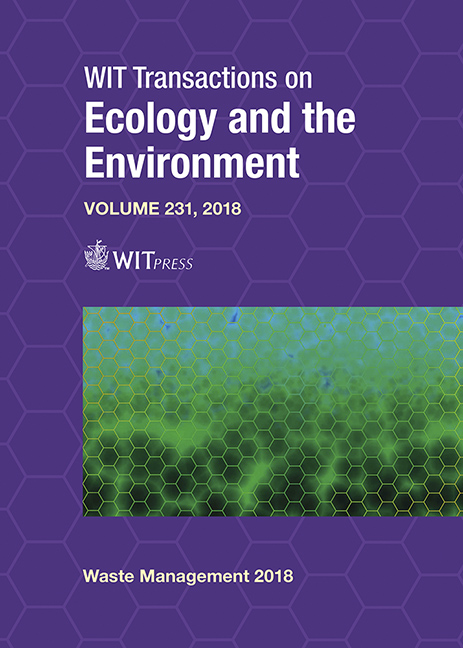EVALUATING THE CAPACITY OF A BUILDING’S WASTE AND THE POTENTIAL FOR SAVINGS USING THE LIFE CYCLE ASSESSMENT METHODOLOGY
Price
Free (open access)
Transaction
Volume
231
Pages
12
Page Range
159 - 170
Published
2019
Paper DOI
10.2495/WM180151
Copyright
WIT Press
Author(s)
HATİCE SÖZER, HÜSEYİN SÖZEN
Abstract
Waste and their management policies have significant effects on the environment. Hence, decision-makers have to be very careful while making decisions about waste management systems. In this research paper, a big scale building’s waste was identified based on its life cycle assessment (LCA). A methodology was developed to determine the optimum saving potential from the waste management regarding the gate-to-grave system boundaries that covers two stages in the lifetime of the building: the building in use and once demolished. The case study building is an elderly house that is located in the Kartal district of Istanbul. The total conditioned floor area in the building is 18.108 m2, the building has eight stories which accommodates 556 people including workers. The building’s waste in this research was categorized as solid and liquid waste. Also, the operational energy consumption was examined with LCA methodology to compare with defined waste management system. The waste was examined in terms of EN 15978 standard which also includes the investigation of the waste transport to wasteland, waste processing and disposal stages. The Turkish Statistical Institute (TUIK) was used as a reference to obtain the waste production per capita. The LCA results showed that there is an energy recovery potential from generated waste of the case study building. Especially, municipal solid waste (MSW) have significant energy recovery potential because of the recycling processes. Cumulative energy demand (CED) of all waste management systems is -107.956 kWh/year. Nonetheless, the potential compensate only 1.5% of total CED of operational energy consumption. If the recyclable waste could handle a proposed management system, the compensation rate could be increased and a more significant rate could be achieved. On the other hand, global warming potential (GWP) of the whole waste management system is 117.682 kg CO2eq./year which is 14 times smaller than GWP of operational energy.
Keywords
life cycle assessment, waste management, municipal solid waste, liquid waste, demolition waste





